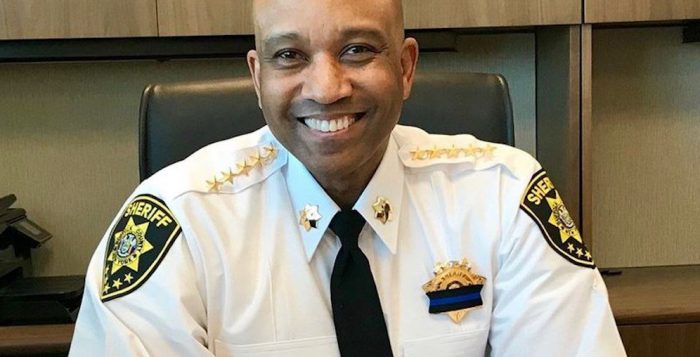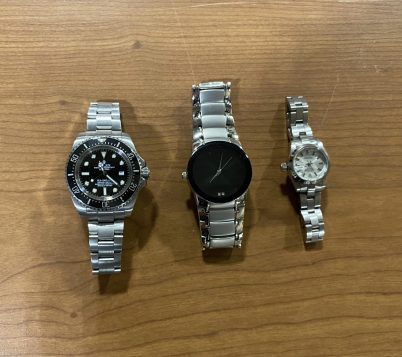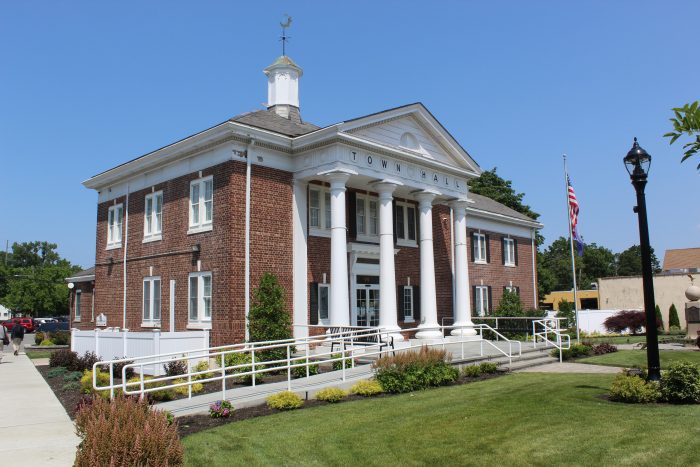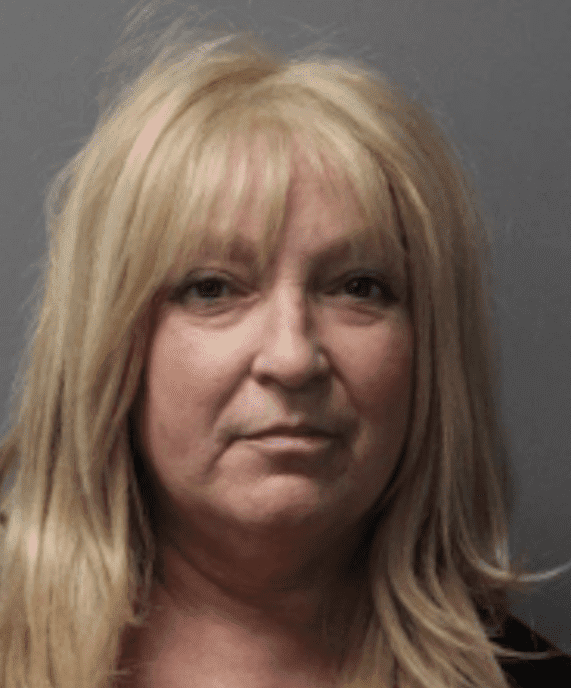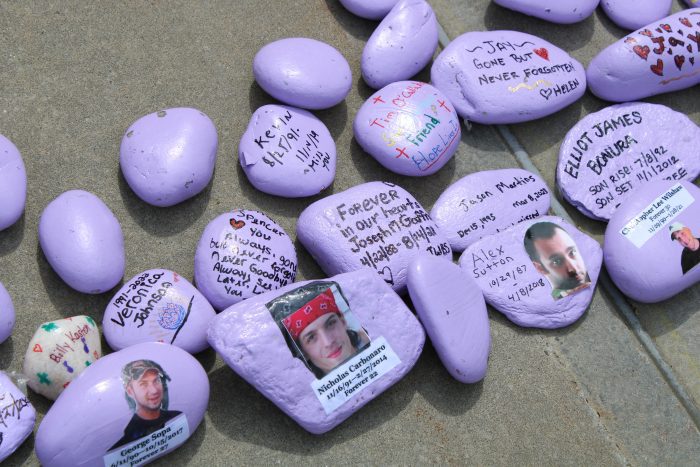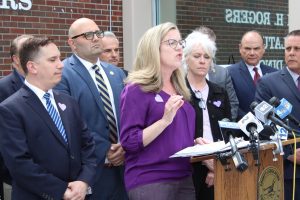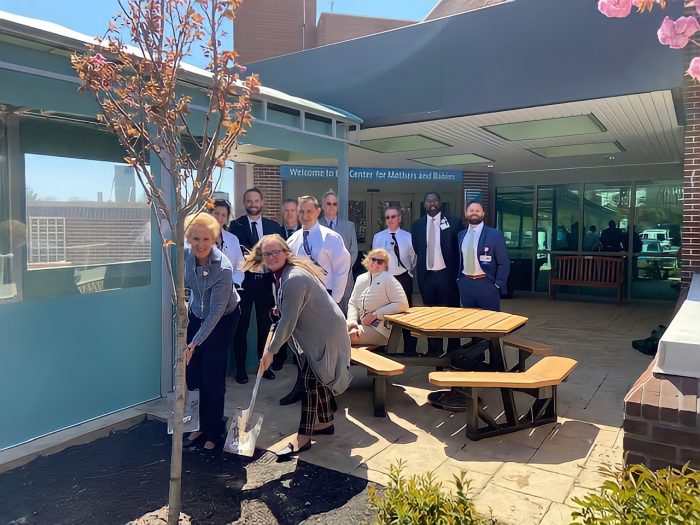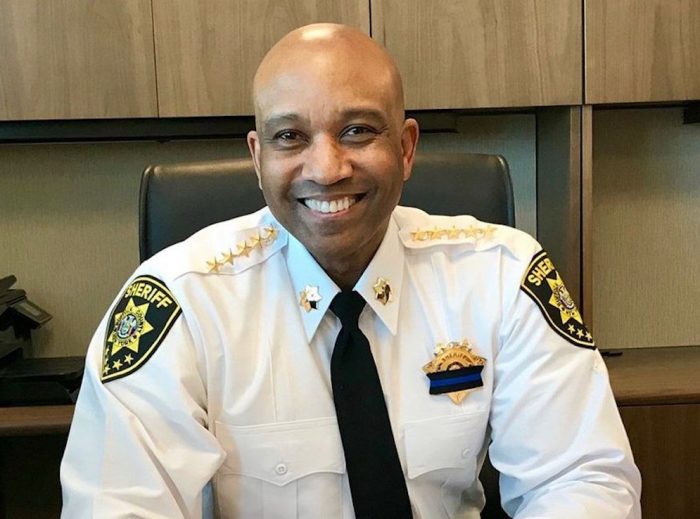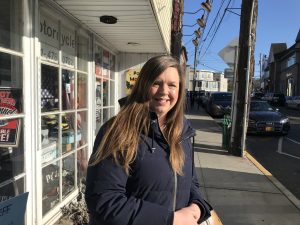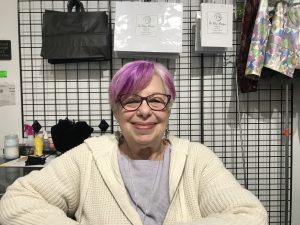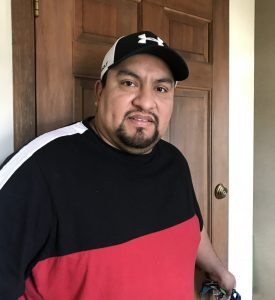This week, TBR News Media had an exclusive interview with Suffolk County Sheriff Errol Toulon Jr. (D). During our conversation with the sheriff, he addressed his battles with cancer, the challenges of steering the sheriff’s department through a pandemic and his surprising place in the history of the New York Yankees.
Sheriff, what is your professional background and how did you land in the Suffolk County Sheriff’s Office?
I started my career in 1982 as a New York City correction officer and I worked with the New York City Department of Corrections for 22 years on the uniform side. From 1982 until 2004, I worked on various assignments in numerous jails throughout the department. We had almost 25,000 inmates in our city system back then. I worked in our emergency services unit for almost 10 years. I was a captain there and also a captain in our detectives unit for almost three years before I retired. I also worked in the compliance division toward the end of my career.
I had to leave because I had some health issues. I’m a two-time cancer survivor. Uniquely, after I was able to recover from my illnesses, I went back to school to finish my bachelor’s, master’s and I received a doctorate in education. I worked with County Executive [Steve] Bellone [D] as his assistant deputy county executive for public safety for almost two years, where I tell people that I truly got an understanding of the landscape of Suffolk County. Then, I returned back to New York City as the deputy commissioner of operations, overseeing almost all of the operational aspects of the department from 2014 until 2017. I then decided to run for sheriff in September of 2017.
How has your battle with cancer impacted both your outlook on life and the work that you do for Suffolk County?
One of the things that I realized as a two-time cancer survivor is that you never know what the person next to you — whether you’re on the ball field watching kids play or you’re in the movie theater or the supermarket — you don’t know if someone has health issues, financial issues, relationship issues. I think I have become a lot more sympathetic and also empathetic to the plights that people are going through.
Earlier in your career, you worked at Rikers Island. How has that experience shaped your later approach as county sheriff?
My father was a warden on Rikers Island for 36 years, starting off as a correction officer. I remember during one of the early conversations I had with him, I asked him about his employment. He said, ‘We rehabilitate men and women who are in jail.’ That kind of resonated with me throughout my career.
When I became sheriff, I noticed that almost 85% of the men and women that are in our custody are returning back to our communities. In order to help them and to have less victims in our communities, while we have them within our custody why not try to provide them with the resources so that they can be successful when they return back to our communities?
What are some of the struggles that your department had encountered due to the COVID-19 pandemic and how did you attempt to overcome them?
When I was the deputy commissioner, we had to deal with the H1N1 and Ebola viruses. When we learned about COVID-19 in Washington state in 2020, we started preparing for the possibility of there being an outbreak. By the end of February, we had our plans set. We implemented them around the second week of March because the first [confirmed] case of COVID in New York state was March 1 and the first case in Suffolk County was March 8. By that second week of March, we started implementing measures of social distancing; we had masks that were mandated to be worn; we started doing temperature checks; and we told our staff that if they were not feeling well or had any of the signs of identified symptoms for COVID-19, that they should seek out their health care professionals.
With the jails, we cleaned our facilities three to four times per day. Inmates were required to wear masks. We were able to “cell skip’’ our inmates, so instead of inmates being in cells 1, 2, 3, 4 and 5, they were in cells 1, 3, 5, 7 and 9. We did stop visits because, if you remember, [former] Governor [Andrew] Cuomo [D] had said that if we shut down visits for two weeks, we’d be OK. We did shut down our visits for any individuals coming in and for any service providers entering our jails. It proved to be somewhat successful, but we had to do it for longer than we anticipated.
From March, when we first implemented those measures, until the beginning of December, we only had five inmates that had tested positive — and I should say, three tested positive in the jails, two came into the jail positive. I think we were very successful.
What we also did was that every newly admitted inmate had to go into a quarantine for 14 days while our medical staff checked up on them three or four times a day. We wanted to make sure that our new admission inmates weren’t exposing any inmates that had been in our custody with any potential virus.
You were recently sworn in for a second term as sheriff. What is your vision for the next four years at the department?
There are three things that I’m working on.
Mental health and substance abuse seem to be the primary traits for the majority of the men and women not only in our custody but throughout the nation’s prisons and jails. We’re working very hard to understand those two components because we want to be able to help those men and women, and even those that are not in jail — maybe there’s no criminal activity in their lifestyles, but they’re still suffering.
We want to see what we can do, working with various community partners and service providers to look more holistically and see what’s going on. We do understand, even with some of our youth, who we are learning may have adverse childhood experiences, not only are they experiencing mental health and substance abuse in the home, but there are also traumatic issues, domestic violence issues and socioeconomic challenges. Those are the things we intend to focus on.
We’re also looking to create the first network of information sharing for jails and prisons throughout the United States. We think this will be very beneficial. We know that most police departments are sharing information with each other, but jails and prisons throughout the country are not. We want to tap into that resource because if we learn of different trends that are occurring, we can also alert our law enforcement partners to these things that are occurring, specifically in the jails and prisons throughout our region and our country.
Your office has donated bulletproof vests to the people of Ukraine. What are some of the other philanthropic initiatives that your office has been part of to benefit both Suffolk County and the greater global community?
That was a start by donating those decommissioned vests, but one of the things we are embarking on is that the Suffolk County Sheriff’s Office is now an advisory component to a sheriff’s foundation. This is not run by the Sheriff’s Office, but by a group of individuals. They’re a 501(c)(3) and their goal is to have fundraising events. We do so much in the community that they want to assist us in really helping these kids that are having certain issues. Whether it is donating school supplies or the various community events that we want to do, we want to strengthen the bond between the community and the Suffolk County Sheriff’s Office.
Also, we really want to engage our youth because they are the ones that we want to make sure are on the right path, that they look at law enforcement as a positive role model, and that they maybe even want to come join our forces and work at the Suffolk County Sheriff’s Office.
You are the first African American elected as Suffolk County sheriff. What does that distinction mean to you?
To me, and I know that’s something that has been said to me a lot, my first goal is to be the best sheriff possible, regardless of my race. I do realize that being the first African American not only as sheriff, but the first African American elected to a nonjudicial county-wide position on Long Island, Nassau or Suffolk, it’s something that I’m very cognizant of wherever and whenever I go somewhere.
I know there are a lot of people looking at me, some favorably and some unfavorably. I think I need to be who I am and not necessarily who people perceive due to the color of my skin.
Baseball season is now underway and I have learned that you also occupy a place in the history of the New York Yankees. Could you elaborate on this?
Yes. I was fortunate enough in 1979 and 1980 to be a bat boy with the New York Yankees. They had just come off of back-to-back World Series championships in 1977 and 1978. Tragically, in 1979 our captain, Thurman Munson, was killed in a plane crash and we fell short of making the playoffs that year. Subsequently, in 1980 we did make the playoffs, but we lost three straight to the Kansas City Royals. In the third game, I was the ball boy down the right field line watching George Brett hit a three-run homer off of Goose Gossage, which went into the upper deck. I realized then that my career as a bat boy had quickly come to an end.
What are your thoughts on Aaron Judge’s contract fiasco?
I hope they do sign him. I think he’s proven to be not only a great ballplayer when he’s not injured, but more importantly a great role model. Mr. [Joe] DiMaggio and Mr. [George] Steinbrenner — both of whom I was fortunate enough to meet and speak with — would say that he is the type of person they would want to be a Yankee for his entire career, very similar to Derek Jeter.
Sheriff, thank you for taking this interview. Is there anything else that you would like to say to our local readers?
Yes. I firmly believe that the Suffolk County Sheriff’s Office is changing the paradigm of criminal justice, not just in Suffolk County but throughout New York state. We’re continuing to look for partners, both from the governmental side but also the community side, to make sure that we are not only able to engage but also help those that need us. That’s why we’re here. We’re really here to help our community.

